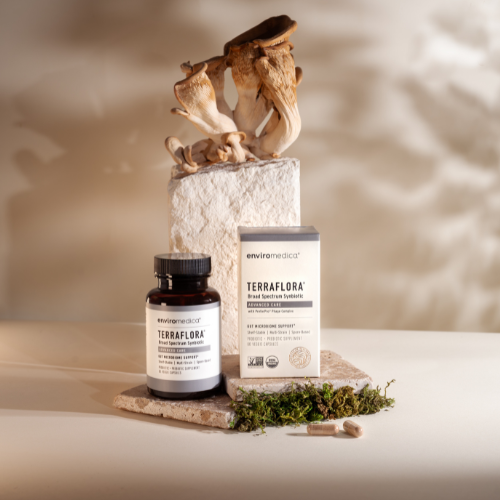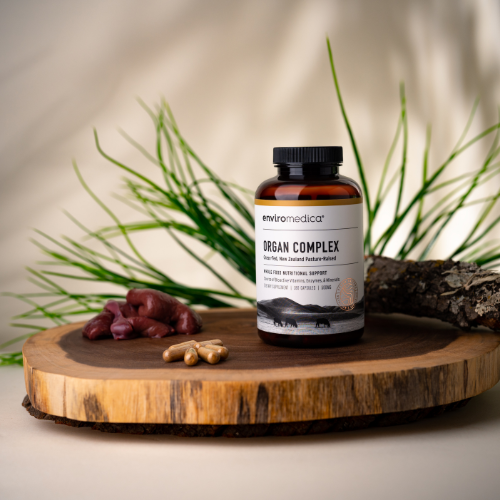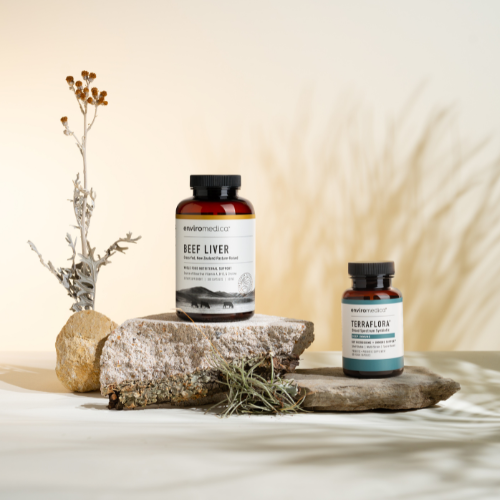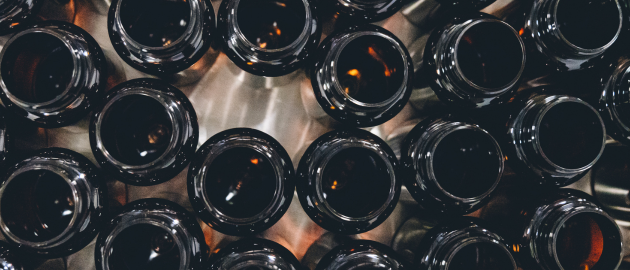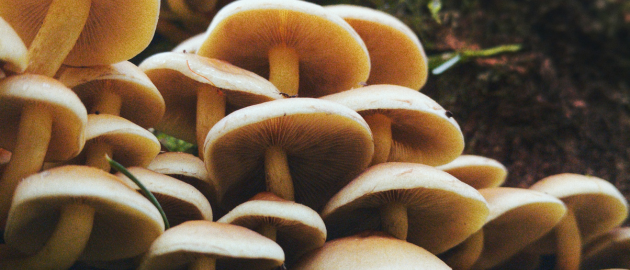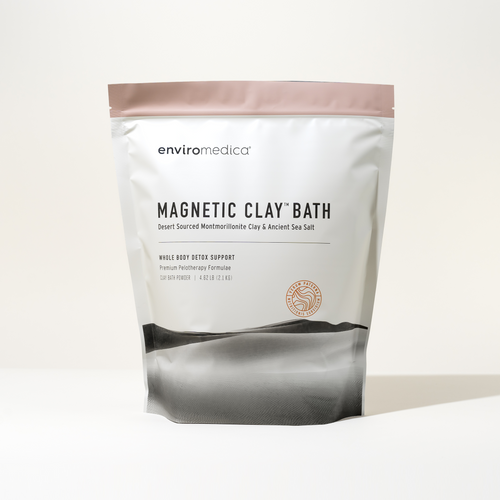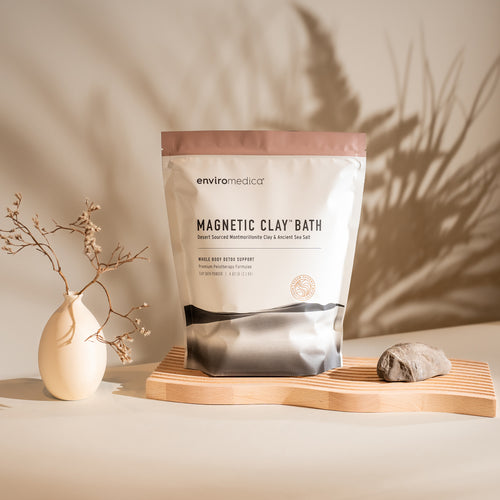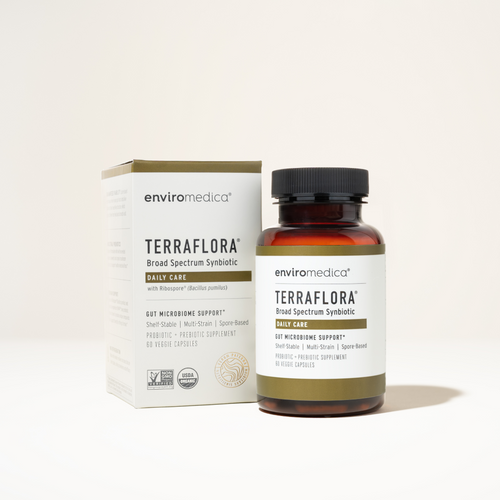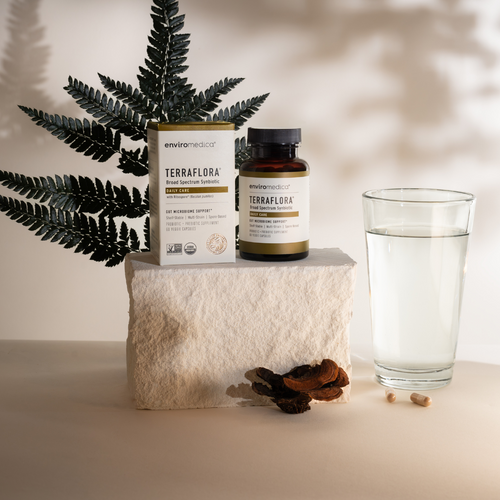Your body's first line of defense against environmental toxins? Your microbiome.
In today’s world, exposure to environmental toxins isn’t a possibility—it’s a certainty. From pesticides in our food to airborne pollutants, microplastics, and industrial chemicals, modern life presents a constant barrage of stressors that our ancestors never faced at such concentrated levels. But our bodies were never meant to be defenseless.
At the core of our resilience lies a powerful, often-overlooked system: the gut microbiome. This vast community of bacteria and other microorganisms does more than support digestion—it acts as a frontline defense, metabolizing toxins, protecting gut integrity, and reducing the inflammatory burden caused by modern pollutants.
However, just as a thriving forest can withstand storms while a depleted one struggles to survive, the strength of your microbiome determines how well your body handles environmental toxins. The goal, then, is not just to detox, but to cultivate microbial resilience—fortifying your body’s natural ability to neutralize and eliminate harmful substances.
How environmental toxins disrupt your microbial terrain
1. Pesticides & herbicides: Microbial disruptors in our food supply
Modern industrial agriculture relies heavily on pesticides like glyphosate, which research shows can alter gut bacterial composition, weaken beneficial strains, and reduce overall microbial diversity.1
How it affects you:
- Disrupts beneficial gut bacteria that aid digestion and immune function
- Increases intestinal permeability ("leaky gut"), allowing toxins to enter the bloodstream
- Creates an imbalance that favors harmful bacteria, leading to inflammation
How to counteract it:
- Prioritize organic, regeneratively farmed foods to reduce pesticide exposure
- Support microbial diversity with soil-based probiotics, which contain strains adapted to environmental resilience
- Incorporate detoxifying fiber (flaxseed, chia, prebiotic-rich vegetables) to help bind and eliminate toxins
2. Air pollution: A threat beyond the lungs
While we often associate air pollution with respiratory health, studies show that exposure to particulate matter and industrial pollutants directly alters the gut microbiome, increasing inflammation and making the gut more susceptible to pathogens.2
How it affects you:
- Reduces beneficial gut bacteria linked to metabolic and immune health
- Increases systemic inflammation, impacting digestion and cognitive function
- Contributes to oxidative stress, accelerating cellular aging
How to counteract it:
- Spend time in nature—forest air contains beneficial microbes that help replenish microbial diversity
- Incorporate antioxidant-rich foods (berries, turmeric, green tea) to combat oxidative stress
- Take magnesium-rich baths to support stress relief and cellular detoxification
3. Plastics & Microplastics: A hidden gut disruptor
Microplastics have infiltrated our food, water, and environment, and emerging research suggests they may alter gut bacteria composition, contribute to inflammation, and disrupt hormone balance.3
How it affects you:
- Disrupts endocrine function, impacting metabolism and stress resilience
- Alters gut bacterial diversity, favoring inflammation-prone strains
- May contribute to intestinal permeability, exacerbating toxin absorption
How to counteract it:
- Reduce plastic exposure by using glass or stainless steel for food storage and drinking water
- Consume detox-supporting compounds like chlorophyll, spirulina, and activated charcoal
- Restore microbial balance with prebiotics and probiotics, supporting gut integrity against external stressors
4. Heavy Metals: A burden on gut and brain health
Toxic metals like mercury, arsenic, and lead accumulate in the body over time, disrupting gut microbial composition and contributing to neurological and immune dysfunction.4 These metals are commonly found in contaminated water, industrial pollution, and even certain seafood sources.
How it affects you:
- Kills beneficial gut bacteria, favoring pathogenic strains
- Weakens gut lining integrity, increasing toxin absorption
- Interferes with detox pathways, leading to bioaccumulation
How to counteract it:
- Use mineral-rich detoxifying clays, which bind to heavy metals and support elimination
- Support glutathione production with sulfur-rich foods (garlic, onions, cruciferous vegetables)
- Consume probiotic-rich foods to enhance gut barrier function and microbial resilience
Building a resilient microbiome: A defense strategy for the modern world
Rather than chasing quick detox fixes, true resilience lies in supporting the microbiome’s natural ability to defend against toxins. Our ancestors encountered environmental stressors, too—but they thrived because their microbiomes were rich, diverse, and fortified by nature. We can follow their lead with simple, daily habits:
Diversify your diet: Ancestral diets were rich in wild plants, fermented foods, and soil-based microbes. Incorporate fiber, fermented foods, and polyphenol-rich plants to fuel microbial resilience.
Restore beneficial bacteria: Supplement with soil-based probiotics to reinforce gut barrier function and microbial diversity.
Engage in daily detoxification: Use clay baths, magnesium soaks, and mineral-rich foods to help eliminate stored toxins.
Reduce environmental exposure: Choose organic, non-toxic household products and natural skincare to minimize chemical burden.
Reconnect with nature: Spending time in natural environments exposes your body to beneficial microbes that replenish and diversify your gut flora.
Thriving in a toxic world
We can’t escape environmental toxins entirely, but we can build resilience. The key isn’t just avoiding exposure—it’s fortifying the internal ecosystem that helps us thrive despite it. By strengthening our microbiome, we create a buffer against modern stressors, reclaiming the adaptability and vitality our ancestors once knew.
Ready to fortify your microbiome? Explore microbiome-supporting supplements and detox essentials designed to help you thrive in today’s world.
References
- 1. Mesnage R, Antoniou MN. Computational modelling provides insight into the effects of glyphosate on the shikimate pathway in the human gut microbiome. Curr Res Toxicol. 2020;1:25-33.
- 2. Fouladi F, Bailey MJ, Patterson WB, et al. Air pollution exposure is associated with the gut microbiome as revealed by shotgun metagenomic sequencing. Environ Int. 2020;138:105604.
- 3. Prata JC, da Costa JP, Lopes I, et al. Environmental exposure to microplastics: An overview on possible human health effects. Sci Total Environ. 2020;702:134455.
- 4. Breton J, Massart S, Vandamme P, et al. Ecotoxicology inside the gut: Impact of heavy metals on the microbiome and physiological systems of the host. Microb Pathog. 2013;65:4-18.
